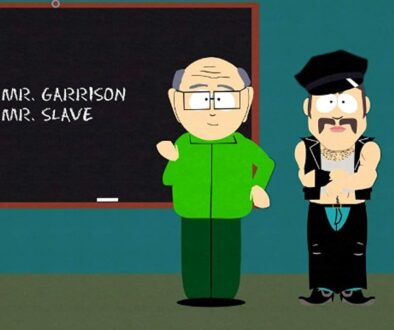Flying Was The Best Bit (The Last War in Albion Part 42: The Origins of Captain Britain)
Hello everyone. I’m currently running a Kickstarter to help fund the continuation of The Last War in Albion. Right now we’re funded through Book Two, which will focus on Watchmen, and are well on our way to the first stretch goal, which will guarantee Book Three. Please consider contributing to help this blog keep going and this blogger keep eating food.
This is the second of ten parts of Chapter Seven of The Last War in Albion, focusing on Alan Moore’s work on Captain Britain for Marvel UK. An omnibus of the entire is available for the ereader of your choice here. You can also get an omnibus of all seven existent chapters of the project here or on Amazon (UK).
The stories discussed in this chapter are currently out of print in the US with this being the most affordable collection. For UK audiences, they are still in print in these two collections.
Previously in The Last War in Albion: Marvel Comics traces its origins back to 1939, but in its modern incarnation dates to 1961 when Jack Kirby and Stan Lee created The Fantastic Four and a string of further hits. By the 1970s, however, Marvel had largely moved on to its second generation of talent.
 |
| Figure 313: As was the norm for debuts of British comics, the first issue of The Mighty World of Marvel featured a free and thoroughly lame gift. |
As part of this corporate expansion, Marvel decided to look into foreign markets, specifically the United Kingdom. Short of Odhams’ Power Comics line that gave Steve Moore his comics industry breakthrough, Marvel comics had no official UK distribution, famously arriving as ballast on ships that was then sold off in an entirely unlicensed and functionally unregulated market that made following individual series difficult. In 1972, three years after Odhams was absorbed by IPC and dropped the Marvel license, Marvel decided to take matters into their own hands by creating a UK-based publisher that would distribute Marvel work for the UK comics market. Recognizing that the British and American comics markets were fundamentally different media, with the UK dominated by weekly black and white anthologies as opposed to the monthly color comics featuring a single story of the US market, Marvel UK kicked off its line at the end of September with The Mighty World of Marvel, an anthology that initially featured Spider-Man, the Fantastic Four, and the Hulk. Five months later they added Spider-Man Comics Weekly to the line-up, bringing Thor and Iron Man to the UK market as well.
 |
| Figure 314: Chris Claremont’s debut on The Uncanny X-Men was a landmark moment in the history of Marvel Comics. |
Claremont was responsible for the one bright spot in Marvel’s 1975 – a relaunch of the low-selling The Uncanny X-Men featuring an almost entirely new cast of characters cooked up by outgoing editor-in-chief Len Wein and Dave Cockrum. Claremont quickly settled into a distinctive style that retained the soap opera elements that Stan Lee had perfected in The Amazing Spider-Man, but used the considerably larger cast of The Uncanny X-Men to build a considerably vaster drama, carefully managing plot lines so that stories began with minor details touched on in a couple of panels, slowly dominating more and more of a given issue until they finally moved into the spotlight as the primary feature of a run of issues, by which time more stories would be seeded in the background featuring characters not focused on as intently by the main plot. The Uncanny X-Men would quickly move from being a low-selling disaster to being Marvel’s flagship book, and Claremont would remain on the title for sixteen years.
 |
| Figure 315: The debut of Captain Britain |
In addition to being a breath of creative fresh air, Claremont had been born in London, although he moved to the US at the age of three and held US citizenship. And so it was not a surprise that Marvel turned to him in 1976 as the writer for their first attempt at original content for the UK market, Captain Britain. By 1976, however, the comics landscape for Marvel UK had changed substantially. Having expanded to too many titles, and with the UK economy in sufficient freefall that the UK had to take a loan from the IMF in 1976, Marvel UK spent much of 1976 cancelling and merging titles in the grand British tradition. Super-Heroes, a new title featuring more obscure characaters, was merged into Spectacular Spider-Man Weekly (formerly Spider-Man Comics Weekly), which then became Spectacular Spider-Man Weekly and the Super-Heroes. Dracula Lives was cancelled and merged into the bizarre amalgamation of Planet of the Apes and Dracula Lives, and the failed Conan title was shoved into The Avengers, which was then dropped and merged into Mighty World of Marvel. The revolving door of titles meant that individual features were shuffled around madly – comics featuring the Avengers went from being published in The Avengers itself to Mighty World of Marvel before, three months later, getting shuffled off to Super Spider-Man and the Titans, which is what the Spider-Man comic had become after absorbing yet another failed title. In the midst of all of this, Marvel brought in Stan Lee’s younger brother, Larry Lieber, who had served as Lee’s right-hand man in the early days of the Marvel line, as editor of the Marvel UK line.
 |
| Figure 316: Merlin appears to Brian Braddock in a flash of Kirby Krackle (Written by Chris Claremont, art by Herb Trimpe, from Captain Britain #1, 1976) |
The first appearance of Captain Britain is a strange thing. Capped at seven pages (that being the length of the color section), it’s forced to rush through things. It begins in media res, with Captain Britain squaring up against a golden-armored knight apparently named Reaver. But Captain Britain’s thoughts betray that he’s profoundly new to this – he reacts in shock at the strength of his staff and at how he’s “reacting with the speed of thought… I’m battling these thugs as if I’ve been fighting all my life. But I haven’t! I’m a physicist, not some… super-hero!” Displaying a questionable sense of priorities for someone being attacked by an armored man with a giant sword, he decides that “I must think if I’m to survive. I must… remember…,” prompting a five page flashback in which we learn that he was, just a few minutes ago, Brian Braddock, a student at Thames University who is helping out at a nuclear complex on Dartmoor. The complex is attacked by supervillains who proceed to stun everyone save for Braddock, who flees on a motorcycle, which he unfortunately crashes off a cliff, landing in a fiery wreck. When he improbably comes to, he hears a voice proclaiming, “I who am the beauty of the green Earth and the white moon amongst the stars and the mystery of the waters, and the desire of the heart of man, I call unto thy soul to arise and come unto me. For I am the soul of nature who giveth life to the universe; from me all things proceed… and unto me all things must return.” But instead of the Wiccan coven that one might expect given that this monologue is lifted straight from Doreen Valiente’s “Charge of the Goddess” from her 1956 revision of the Gardnerian Book of Shadows, Braddock is then confronted by two spectral figures who explain that he is in a circle of power and here to be judged, and that he must “choose either the amulet or the sword… life or death – for thee and mayhap for thy world as well!” At which point the strip leaves off as a cliffhanger, Captain Britain’s origin not even completed.
 |
| Figure 317: The first appearance of Captain Britain was accompanied by a breathtakingly patronizing “personal message from Stan Lee.” (Click to enlarge) |
With backup features including reprints of The Fantastic Four and of Jim Steranko’s iconic run on Nick Fury, Agent of S.H.I.E.L.D., Captain Britain enthusiastically proclaimed its own self-importance as “the greatest comics weekly of all time” in the course of its “personal message from Stan Lee.” But this personal message betrays the larger problem with the comic as well. “All of Britain has been waiting for him,” it declares, “and now he’s here at last… specially written and drawn just for you!” The nature of the “you” is ambiguous, but in context the comic appears to be claiming that Marvel’s American staff has nicely created a superhero for Britain, as a sort of gift. The implication – that Britain could never do this itself – is perhaps not entirely inaccurate. It had, at least, not really done it since Mick Anglo’s Marvelman stopped creating original material in 1959, and even Marvelman was just a barely veiled ripoff of Fawcett’s Captain Marvel. Whether this was because Britain could not create their own superhero or the more likely reason – that the British public was largely more interested in other genres of comic such that nobody thought to – is largely irrelevant, however. What jumps out is the condescending hubris of it – the idea that Captain Britain has been created by Marvel as a generous sop to a poor, misguided country that couldn’t even manage its own superhero. It is a tone that on the one hand resonates all too well with the UK’s weakened status in 1976 and one that feels altogether too much like a comic book reenactment of the humiliation of being forced to crawl to the International Monetary Fund for a bailout.
Certainly the sense that Captain Britain might have been the recipient of somewhat less than the full attention of Marvel Comics is present as early as the second issue, where Claremont failed to get the script to fit into the seven page limit, requiring an eighth page such that the climactic moment of Captain Britain’s fight with Reaver was printed in black and white with the rather farcical header proclaiming it to be a “special bonus this week: a Captain Britain do-it-yourself colour page!” Still, at least Captain Britain’s origin is completed as he chooses the amulet over the sword, declaring that “I’m no killer – no slayer of men!” And so he is transformed into Captain Britain, and made a brother of the Round Table. Which means in practice that he has a big red jumpsuit with Union Jack bracelets, a lion on his chest, a full face mask with a Union Jack headband, and a magical staff. It’s not that any of this is particularly bad. Claremont writes standard issue superhero stuff that, while it lacks much spark, is at least competent. But any spark in it is, like the copious Kirby Krackle of Herb Trimpe’s artwork, merely the borrowed fire from other, altogether more successful sources. Certainly nobody’s heart seemed in it – Claremont departed after only eleven issues over creative differences, and Trimpe has admitted that he thought the character “was a really stupid idea, but there was a paycheck in it.” As Alan Moore put it in his 1982 recap of the character’s history, Captain Britain was nothing more than “an American superhero wrapped up in a union jack.”
 |
| Figure 319: This cover, in which Captain Britain appears to hit the Red Skull with his butt, is one of many unfortunate covers for this story arc. (Art by Herb Trimpe) |
This sense would only increase when Gary Friedrich took over the strip for the eleventh installment, following Claremont’s departure over creative differences. Friedrich, who would go on to be yet another grisly casualty of the comic industry’s labor practices when he was sued out of even being allowed to claim that he co-created one of his most popular creations, Ghost Rider, was a longstanding Marvel writer who was nevertheless mostly used either on non-superhero work (he did extensive work on Marvel’s war comics and westerns) or on titles that were faltering, and his arrival on Captain Britain suggests that things were already coming apart for the title. After a few issues quickly wrapping up Claremont’s trailing plotlines, Friedrich began an extended storyline in which Captain Britain teams up with Nick Fury and Captain America to fight the Red Skull. This arc, which makes up nearly a third of the issues of Captain Britain, is mostly notable for an impressive run of truly awful covers and for an equally impressive screw-up in which issue #17 was misprinted so that it contained pages from issue #18, which was correctly printed again the next week, leaving the proper issue #17 entirely unpublished.
If you enjoyed this installment, please remember to support the continuation of The Last War in Albion on Kickstarter.






May 3, 2014 @ 3:25 am
I hadn't realised before that two of the new X-men aren't on the main cover of X-men 94. Unsurprisingly one is the one that's going to die in the next issue; the other…
May 3, 2014 @ 3:56 am
Always nice to see Doreen Valiente quoted! But some commentary on this fact would have been deeply appreciated. Surely the Charge wasn't altogether commonplace back in the 70s?
May 3, 2014 @ 5:36 am
The other's Canadian. Clearly he's never going to be that important a character.
May 3, 2014 @ 7:12 am
in media res should be in medias res.
Pedantically,
RTL
May 3, 2014 @ 7:35 am
"unsurprising given that Tennant would have a long career based on his ability to sense popular trends."
OK, that line got a big laugh out of me. See also footnotes to Appendix 1.
May 3, 2014 @ 8:58 am
Do you know, I actually somehow missed the lift when I wrote that section? Will go revise to include Claremont's source.
May 3, 2014 @ 6:28 pm
Mmm, much better!
So, Captain Britain's origin includes a particularly British invocation to the Goddess, and She eventually arranged for Alan Moore to come in and give Albion its due?
May 3, 2014 @ 11:50 pm
I'm afraid that as far as Captain Britain is concerned I can never get beyond the fact that wrapping yourself in the union flag has imperialist and far right connotations in the UK that perhaps it doesn't in the US. For historical reasons on this side of the pond we tend to view outward demonstrations of British and English (not Scots, Irish or Welsh though) patriotism rather suspiciously. Could this fundamental attitude difference in our separate cultures be the reason why Marvel style nationalistic based super heroes never quite translate to British comics. As Alan Moore understood, our Science-Heroes in the UK tend toward the quirky rather than the muscle bound. Hence Sherlock, Doctor Who, V etc. See also Morrison's Knight and Squire riff in Batman and Robin. Could anyone confirm, I wonder, if this has ever been addressed within the Captain Britain comics themselves?
May 4, 2014 @ 2:31 am
This post rather perfectly captures the first phase of my American comic reading. I read MWoM, Spider-Man and The Avengers (when I could – I couldn't afford all of them all the time) from the beginning. However, I quickly discovered I preferrred the actual, coloured American comics. Everywhere we went I would seek out all the newsagents I could and scan them for US comics. I got quite skilled at quickly checking if they had anything, so as not to annoy my parents too much, and if they had a stash I would ask for the time to carefully go through them looking for gems. Some comics I can still picture the places I found them (such as my first Master of Kung Fu; the first ever Guardians of the Galaxy story is also associated with a song I heard at the time I first read it). I developed set routes for the cities I knew best – Coventry and Southampton – to make sure I didn't miss any of the newsagents with possible finds.
I had completely stopped getting the Marvel UK reprint comics by 1976, but decided to give Captain Britain a go. I lasted less time than Chris Claremont.
May 4, 2014 @ 5:42 pm
"And these problems can hardly be called a surprise – of course a series with a hook of 'Britain’s very own superhero' is going to be lackluster when it’s produced by a bunch of Americans with a minimal-at-best connection with Britain."
And yet here we are every week, reading an American's take on beloved British cultural properties… 😉
May 4, 2014 @ 6:01 pm
You know, it's a fair point. 🙂
May 6, 2014 @ 3:16 pm
You've the line about Claremont leaving for creative differences twice in back to back paragraphs. One of them is redundant, surely?
May 7, 2014 @ 11:46 pm
I know this was true, but I don't think it is still the case really. The 90s seemed to shift the Union Jack from tacit to being just a bit crass. Very much after the period being covered but still. Also Paul Cornells recent run did some good work on what a palatable idealised set of British values might be.
May 8, 2014 @ 4:38 am
Hmm. Yes I take your 90s point. Ginger Spice at the Brits dressed in a Union flag mini dress made out of a towel being an interesting manifestation not only of pop culture re-appropriation but of the best kind of dumb-ass zeitgeist antenna at work. However, living in Brighton and having to witness the last couple of St. George's Days marred by the spectacle of the bone-headed English Defence League and their misplaced 'patriotic' flag waving as aggression tactics I would argue that it is still very much the case that overt English or British nationalism plays differently from the equivalent pride in the flag demonstrated in the USA.